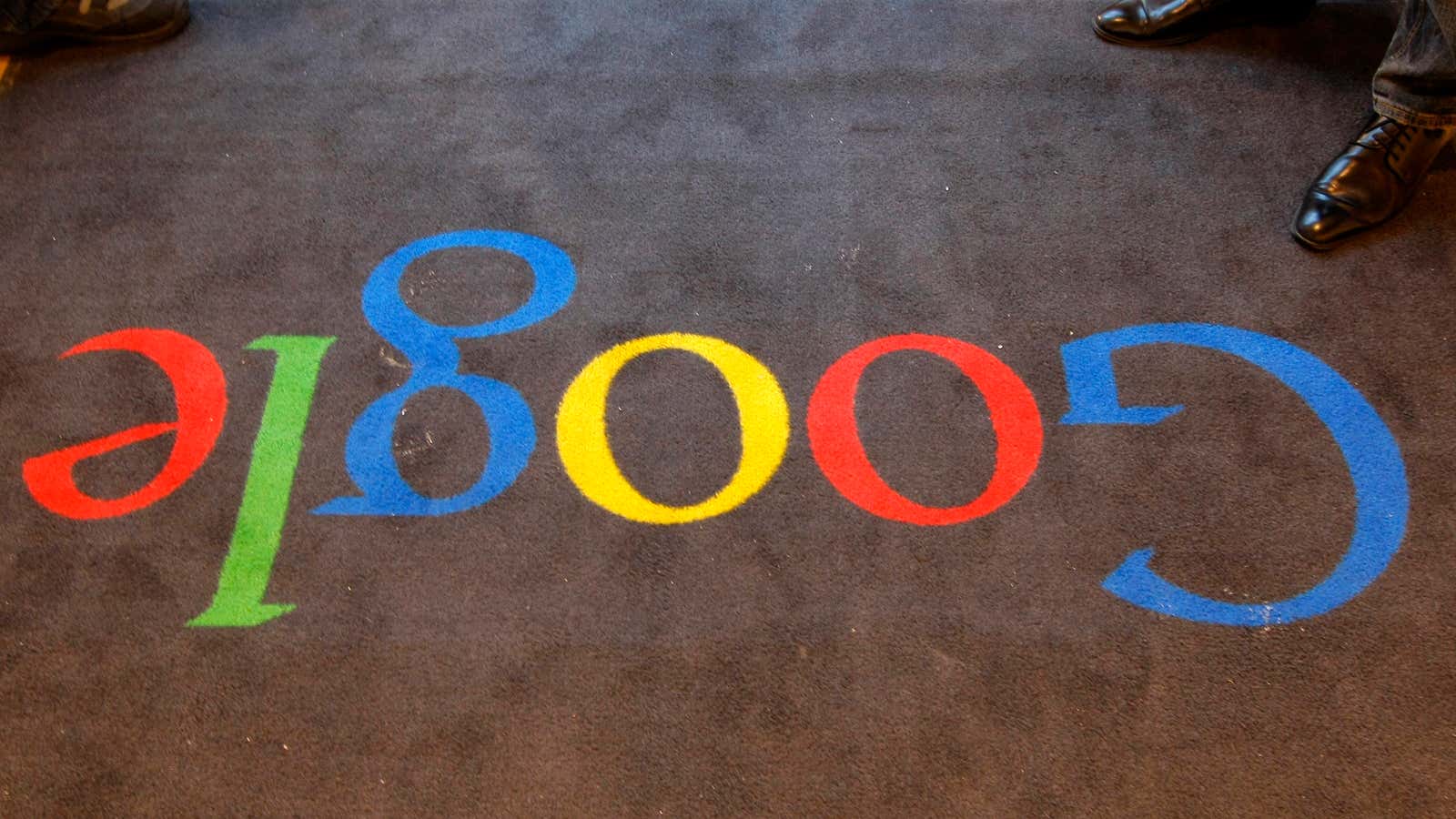Google is in a giving mood this holiday season, settling a number of long-running disputes in the United States and Europe with concessions that the company had previously resisted. (For your own holiday treat, try searching Google for “Festivus,” a secular holiday popularized by the American TV show Seinfeld.)
Adjusting search results for Yelp, et al.
The most significant deal, expected to be announced this week, is with the US Federal Trade Commission over Google search results that make use of restaurant and travel reviews from rivals like Yelp and TripAdvisor. Politico reports that Google will adjust how it displays snippets of these reviews, which the companies have been fighting about for years.
It’s not clear exactly how search results will change, but any concession would be significant because Google has long maintained that it has the right to incorporate some information from other websites—for instance, ratings and excerpts of reviews—into its own products. The FTC suggested this practice gives Google an unfair advantage over its competitors, and the European Commission is still conducting a similar antitrust investigation.
Ceding ground on this issue could have implications for other industries that have also complained about Google’s use of its content and perhaps encourage others to do the same.
Paying to stave off copyright claims
Indeed, Google’s other recent settlement, announced on Wednesday, is with a consortium of French-language news outlets in Belgium. The publishers had for six years sought payment from Google for the snippets of articles that appear in search results, echoing complaints by news organizations in the United States, Brazil, and elsewhere.
Under the agreement, according to Le Monde, Google has pledged to spend €5 million (US $6.5 million) on advertising in the Belgian French-language news outlets. “It is important to note that we are not paying the Belgian publishers or authors to include their content in our services,” Google said in a statement, attempting to maintain a red line that it has always refused to cross. You can decide if there’s a meaningful difference between paying for content and paying to dispense with requests to pay for content.
It’s a delicate issue, in part, because just to the south, Google is attempting to stave off French legislation that would require it to pay for linking to French news sites. When we last checked in on that dispute, France’s minister of technology said she was hopeful that Google and the country’s news industry could reach an agreement and keep parliament out of it. Don’t be surprised if that deal looks similar to the one Google just struck in Belgium.
Looking more like a content company
The deals with the FTC and Belgian news outlets aren’t related and touch on different issues—antitrust vs. copyright—but they come as Google, which long said it wasn’t a competitor to content companies, invests more heavily in… content. The company acquired travel guide Frommer’s over the summer, following up on its purchase of the review franchise Zagat. And Google is paying for original programming on YouTube, as well. Throw in the Google Play app store and Google+ social network, and you have a company that increasingly resembles a content destination.
As this trend continues, Google will undoubtedly face even more scrutiny from rivals and regulators, and it may be forced to make further concessions. The settlements it’s reaching now with a few of those adversaries may point to the sort of détente it hopes to establish with the rest of the world.
